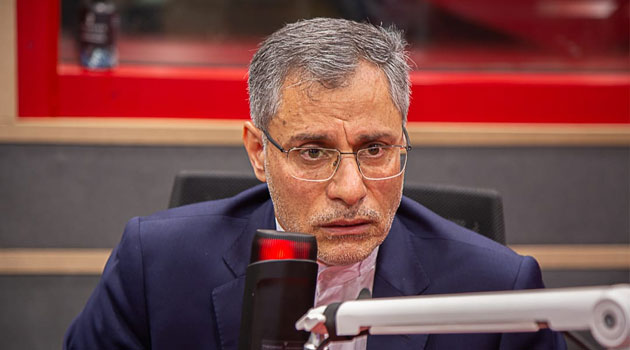
Iran envoy slams UN Security Council inaction over Israeli ‘aggression’ » Capital News
NAIROBI, Kenya, Jul 14 – Iranian Ambassador to Kenya, Ali Gholampour, has criticized the United Nations Security Council (UNSC), accusing the body of failing to act in the face of what he termed as blatant violations of international law by Israel.
The criticism follows a major Israeli assault on June 13 targeting key Iranian nuclear facilities and the killing of senior Iranian commanders and nuclear scientists.
Speaking on Capital in the Morning on Monday, Ambassador Gholampour condemned the UNSC’s inaction, particularly regarding Israel’s continued attacks on Iranian targets and its military campaign in Gaza, which he described as illegal, disproportionate, and in violation of the UN Charter.
He accused Israel of flouting international humanitarian law, especially the Geneva Conventions, which prohibit disproportionate use of force and attacks on civilians.
“They have blatantly breached the basic principles and foundations of international law—the principle of non-use of force and threats of force—and they have violated it gravely,” Gholampour said.
He defended Iran’s military responses, citing Article 51 of the UN Charter, which affirms the right of self-defense in the face of armed aggression.
“Iran has the right to self-defense, and we exercised that right. We responded very decisively,” he stated.
Gholampour revealed that Iran has lost approximately 1,100 people—including 700 civilians such as women, children, journalists, and medical staff—due to Israeli strikes.
“I live in Tehran, and they destroyed the surrounding areas near my home where ordinary people live. These are war crimes—indiscriminate, disproportionate attacks that completely disregard the rights of civilians,” he said.
The ambassador also accused Israel and its allies of targeting Iran’s civilian nuclear facilities, which he emphasized are under continuous inspection by the International Atomic Energy Agency (IAEA).
Non-proliferation
He criticized what he termed as hypocrisy in the international oversight of Iran’s nuclear program, noting that despite Iran being a signatory to the Non-Proliferation Treaty (NPT), it is subject to intense scrutiny.
“More than 50 per cent of the IAEA’s inspection budget is allocated solely for Iran. Yet, despite daily inspections, surveillance cameras, and constant reporting, some still call our facilities a threat. That defies logic and international principles,” he said.
Gholampour questioned why Israel—which he said possesses nuclear warheads and is not a signatory to the NPT—is allowed to attack a country that remains within the non-proliferation framework and under unprecedented scrutiny.
He further accused the United States, a permanent UNSC member, of enabling Israeli aggression, despite its commitment to resolutions like UNSC Resolution 487 of 1981, which condemned Israel’s attack on Iraq’s nuclear facility.
De-escalation talks
The ambassador disclosed that Iran had been engaged in de-escalation talks prior to the strikes, with a sixth round of negotiations scheduled just after the attack.
“What happened was absolutely an unprovoked act of aggression. We had already held five rounds of talks, and the sixth was planned for the day after the attack on Friday. Sunday was scheduled for the next session,” he said.
Gholampour linked Israel’s actions to findings and ongoing cases before the International Criminal Court (ICC) and International Court of Justice (ICJ), where Israel faces allegations of genocide and war crimes.
“They always try to divert global attention from what is happening daily in Gaza. This is a regime whose leaders are now subjects of ICC and ICJ proceedings for genocide and war crimes,” he added.
He described the Israeli attacks on Iran as “illegal, illegitimate, and in total breach of international human rights and humanitarian law.”
Gholampour called on independent states and peace-loving citizens worldwide to condemn what he described as “acts of aggression and atrocities” and to take meaningful steps to prevent their recurrence.
“We believe that all peace-loving people and governments should condemn these atrocities and take appropriate measures to stop and prevent them from happening again,” he said.
“That responsibility rests primarily with the United Nations Security Council, and also with all independent, sovereign governments around the world.”
Despite facing economic sanctions and mounting political pressure, Gholampour said Iran remains resilient and defiant.
“Iran is absolutely not isolated. Of course, the sanctions are intended to isolate and weaken us—but Iran is a strong, ancient country with a rich civilization. We are standing on our feet,” he said.
“They cannot bring us to our knees. That was their plan—collapse the system and change the regime. But they have failed.”